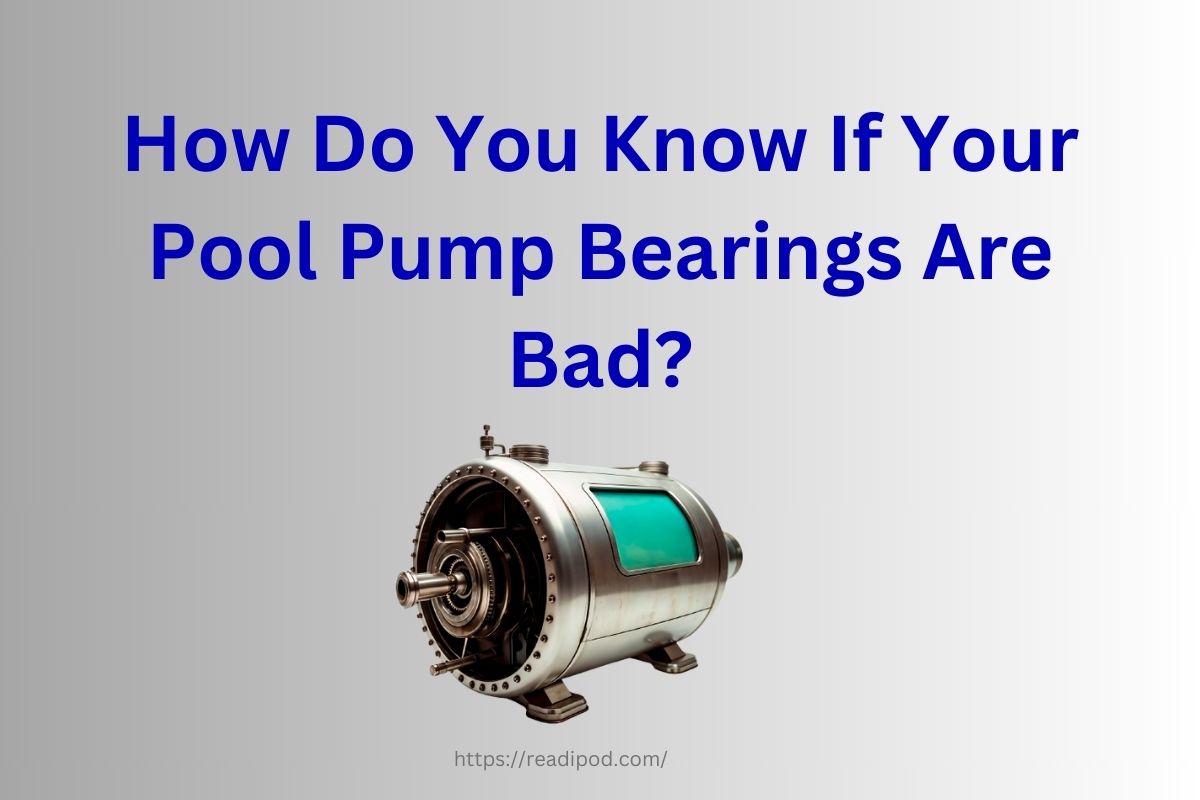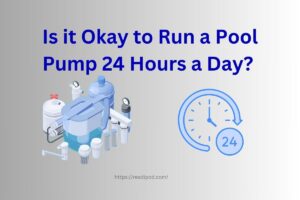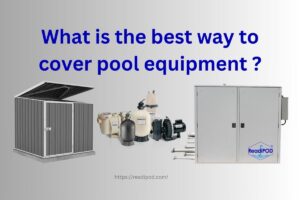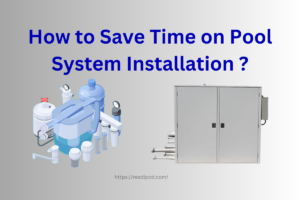The pool pump is the heart of your pool’s circulation system, ensuring clean and clear water by pushing it through the filtration and heating systems. At the core of the pump’s motor, bearings play a vital role in keeping its operation smooth and efficient. When these bearings begin to fail, it can lead to several performance issues, such as strange noises, reduced water flow, or even motor breakdowns. Identifying the signs of bad bearings early can save you from expensive repairs or a complete pump replacement. In this guide, we’ll explore the telltale signs of failing bearings, the common causes behind their deterioration, and steps you can take to diagnose and address the problem effectively.
Signs That Your Pool Pump Bearings Are Bad
If your pool pump bearings are failing, you’ll notice a few common signs:
- Unusual Noises: Grinding, squealing, or humming sounds often mean the bearings are worn out.
- Overheating: A hot motor can be caused by increased friction from damaged bearings.
- Reduced Water Flow: If your pump isn’t circulating water efficiently, bad bearings could be the issue.
- Vibrations: Excessive shaking might indicate unbalanced or failing bearings.
- Burnt Odor: A burnt smell near the pump suggests the motor is overworking due to bearing problems.
- Visible Damage: Rust, pitting, or other damage on the bearings is a clear sign of trouble.
Address these issues promptly to avoid further damage or costly repairs. Regular maintenance can help keep your pool pump in top condition.
Common Causes of Bearing Failure
Bearing failure in pool pumps happens for several simple reasons. Understanding these can help you avoid problems:
- Wear and Tear: Bearings naturally wear out over time due to regular use.
- Lack of Lubrication: Without oil or grease, bearings heat up and fail quickly.
- Dirt or Water Contamination: Dirt, debris, or water inside the pump damages bearings.
- Improper Installation: Misaligned or poorly installed pumps stress the bearings.
- Overloading: Running the pump with blockages or heavy loads strains the bearings.
- Rust or Corrosion: Moisture or chemicals can cause bearings to rust and fail.
- Low-Quality Bearings: Cheap bearings wear out faster than high-quality ones.
Steps to Confirm the Issue
- Listen for Strange Noises: Grinding, squeaking, or humming sounds are signs the bearings may be bad.
- Feel for Excessive Vibration: Strong vibrations when the pump is on can indicate worn-out bearings.
- Check for Overheating: If the pump feels unusually hot, it could be due to bad bearings causing friction.
- Notice Poor Water Flow: Weak or inconsistent water flow may be linked to bearing issues.
- Smell for Burnt Odors: A burnt smell can signal the motor is overheating due to bearing problems.
- Inspect for Visible Damage: If you can safely open the pump, look for rust, wear, or damage to the bearings.
- Call a Professional: If you’re not sure, a technician can confirm if the bearings are causing the issue.
Repair or Replace?
When dealing with bad pool pump bearings, you need to decide whether to repair or replace them.
- Repair: If the bearings are relatively new and the damage is minimal (like slight wear or rust), you may be able to repair or replace the bearings. This can save you money and extend the life of your pump.
- Replace: If the bearings are severely damaged or the motor has other issues, it might be more cost-effective to replace the entire pump. Over time, continued repairs can add up, and a new pump may be a better long-term solution.
Prevention Tips
To avoid bearing issues in the future, follow these simple steps:
- Regular Maintenance: Clean and inspect your pump regularly to catch any early signs of wear.
- Proper Lubrication: Ensure the bearings are properly lubricated to reduce friction and prevent overheating.
- Install Correctly: Make sure the pump is installed and aligned properly to avoid unnecessary strain on the bearings.
- Avoid Overloading: Prevent pump overloading by keeping the system clean and ensuring there are no blockages.
Conclusion
Bad pool pump bearings can cause issues like strange noises, vibrations, and overheating, leading to reduced efficiency and potential damage to your pump. Early detection through regular maintenance can help prevent expensive repairs. If the bearings are only slightly worn, repairing or replacing them can be a good solution. However, if the damage is severe, replacing the entire pump may be the best choice for long-term reliability. Proper lubrication, keeping the pump clean, and avoiding blockages can help extend the life of your pool pump.
If you’re looking for a more efficient and reliable pool system, consider ReadiPOD. ReadiPOD offers a complete, all-in-one solution for pool equipment with a focus on durability, easy installation, and cost savings. Whether you’re upgrading your pool pump or building a new system, ReadiPOD can help streamline the process.





